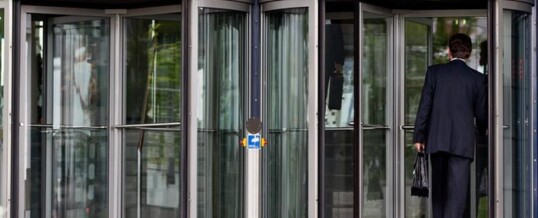
McLeod Group blog by Stephen Brown, October 28, 2021
The new federal Cabinet has been sworn in, with fresh faces for two of Canada’s international-facing portfolios: Mélanie Joly as Minister of Foreign Affairs and Harjit Sajjan as Minister of International Development. Both are surprising choices in unnecessary changes. The revolving doors in ministerial appointments to Global Affairs Canada just diminish the country’s international reach and influence.
Joly will be the fifth foreign minister in six years, a situation the Globe and Mail calls “ridiculous”. Indeed, her predecessor Marc Garneau was in his post for less than a year. He was perhaps too competent a leader, allegedly dropped from Cabinet for “resisting dictates from officials in the Prime Minister’s Office”.
Joly is an unexpected choice for Canada’s top diplomat, given her previous lacklustre performance, notably during her time in charge of the Canadian Heritage portfolio. She also lacks international experience. It is certainly a huge promotion from her most recent post, Minister of Economic Development and Official Languages. Perhaps the Prime Minister’s Office expects her to be more pliable than Garneau.
Still, it is heartening to have once again a woman as Minister of Foreign Affairs, an all-too-rare occurrence. She could make her mark by launching Canada’s long-awaited Feminist Foreign Policy. The policy development process was initiated two ministers ago and each new appointment jeopardizes the timeline. Let’s hope Joly can push the policy document out the door soon – and that it proves to have been worth waiting for, rather than an exercise in branding and virtue-signalling without much actual concrete impact.
Joly’s first tweet as foreign minister includes a promise to “conduct our international affairs in a true Canadian fashion: with humility and audacity”. Under our last few prime ministers, Canadian foreign policy has been so risk-averse that it would be laughable to describe it as audacious. And our government is hardly humble on the word stage, despite having a lot to be humble about. Let’s hope that the tweet is not a sign of what to expect under Joly’s tenure. The world doesn’t need more smug, feel-good Canadian jingoism.
The revolving doors characterize the International Development portfolio almost as much as Foreign Affairs. It is on its fourth minister in six years. The last minister, Karina Gould, was probably the best one Canada has had in a long time. She had development experience, understood the issues and enjoyed good relations with civil society organizations.
There was no apparent need to replace Gould, and Harjit Sajjan is a startling choice as her successor. In recent months, many outside observers called for him to be fired as Minister of National Defence and even dropped from Cabinet because of his failure to deal sufficiently with the sexual misconduct crisis in the Canadian Armed Forces. And now, after being demoted to his new role, he will be in charge of implementing Canada’s Feminist International Assistance Policy.
Not to prejudge his competence in the role, but Sajjan will lack credibility in as a promoter of feminism around the world. Canadian civil society organizations will be very sceptical and wary of him, all the more so because of his military background. It is hard to imagine a greater culture gap in government than the one between, on the one hand, the Canadian Armed Forces and the Department of National Defence and, on the other hand, the development stream at Global Affairs Canada. He is an even odder choice for this position than the last complete surprise appointment, Julian Fantino (2012-2013), who also had a background in policing.
One advantage Sajjan does have is international experience, including family ties to the developing world – a rarity among Canadian Ministers of International Development. But it remains to be seen if he believes that Canadian foreign aid should serve Canadian interests, as Fantino did, or whether it should focus on poverty reduction and align with the goals and priorities of recipient countries, in line with Canadian law and international agreements that Canada has signed. One hopes Sajjan has learned from the case of Afghanistan, where he served, that using aid money to advance security or other donor interests usually fails to produce development or achieve the other goals efficiently.
Other internationally facing appointments are more inspired and inspiring. However, the widely praised appointment of Anita Anand as Minister of National Defence probably reflects the need to sort out the mess in the armed forces rather than provide strategic leadership in how Canada engages the world.
Appointing former activist Steven Guilbeault as Minister of Environment and Climate Change was also a good move, but only if he is allowed significant leeway in moving policy forward. Also, he should have been given that position in 2019, not less than a week before the opening of COP26, the critically important United Nations Climate Change Conference being held in Glasgow. Forcing him to scramble at the last minute constitutes a wasted opportunity.
The removal of competent ministers and the revolving doors at Global Affairs Canada, not to mention the latest controversial appointments there, suggest that Justin Trudeau and the Prime Minister’s Office are not interested in having enduring leadership in the foreign affairs and international development portfolios. Is it because Trudeau wants to make the big decisions himself? Or does he not care much about international portfolios? Whatever the reason, the optics are bad for Canada’s role on the international stage and the needless changes will be disruptive.
Stephen Brown is Professor of Political Science at the University of Ottawa and currently Leverhulme Visiting Professor at the University of Cambridge Centre for Gender Studies. Image: Deutsche Welle.
